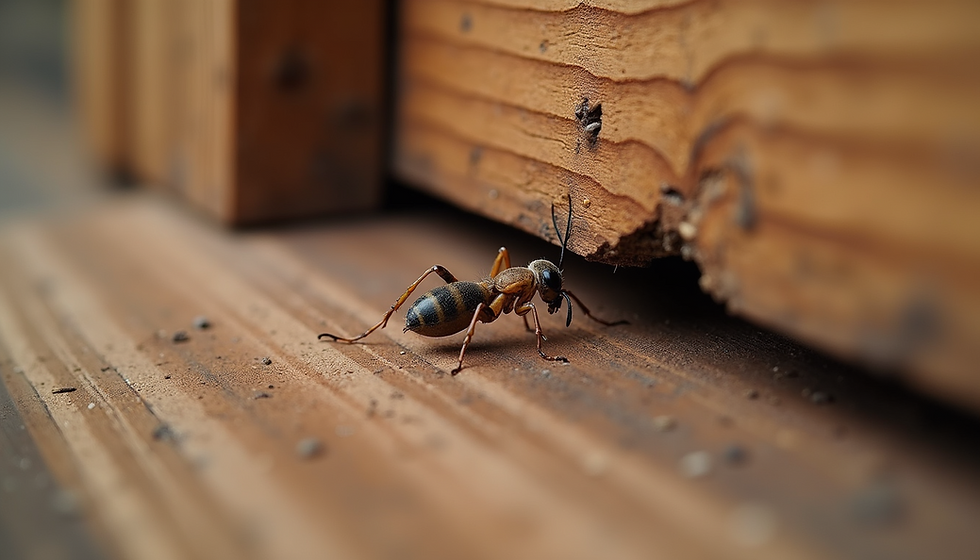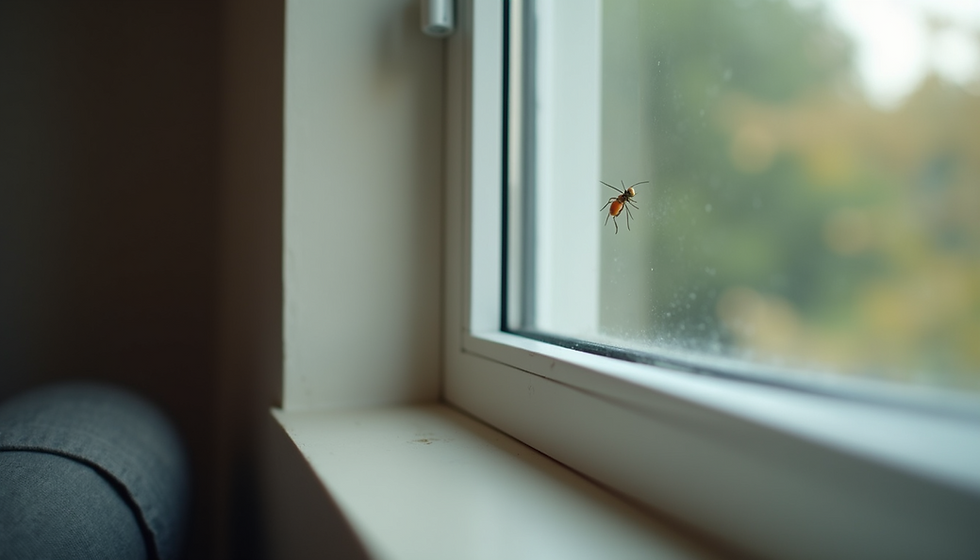Understanding Spider Behavior and Prevention Methods
- Gorilla Pest

- Aug 5
- 3 min read
Spiders are among the most misunderstood creatures in our homes and gardens. While many people fear them, spiders play a crucial role in controlling insect populations. However, when they invade living spaces, it becomes important to understand their behavior and implement effective spider control methods. This article explores spider habits, prevention techniques, and when professional help might be necessary.
How Spiders Behave in and Around Your Home
Spiders are primarily nocturnal hunters, using their webs or agility to catch prey. Most spiders prefer dark, undisturbed areas such as basements, attics, and corners of rooms. They are attracted to places where insects are abundant, which often means homes with other pest problems.
Spiders do not seek to harm humans but may bite if threatened. Their presence is often a sign of other insects nearby. Understanding their behavior helps in managing their populations effectively.
Web-building spiders create intricate webs to trap flying insects.
Hunting spiders actively roam to catch prey without webs.
Spiders tend to avoid open, well-lit areas.

Close-up view of a spider web in a dark corner
Practical Spider Control Strategies for Your Home
Effective spider control starts with prevention. Since spiders enter homes looking for food and shelter, reducing these attractants is key.
Keep Your Home Clean and Clutter-Free
Vacuum regularly, especially in corners and under furniture.
Remove spider webs as soon as you see them.
Declutter storage areas to reduce hiding spots.
Seal Entry Points
Inspect windows, doors, and vents for gaps.
Use weather stripping and caulk to close openings.
Repair damaged screens.
Manage Outdoor Lighting
Use yellow or sodium vapor lights that attract fewer insects.
Position lights away from doors and windows.
Reduce Outdoor Habitats
Trim bushes and trees away from the house.
Remove piles of wood, leaves, or debris near the foundation.
Use Natural Repellents
Essential oils like peppermint, eucalyptus, and tea tree can deter spiders.
Spray diluted solutions around entry points and corners.
These steps create an environment less inviting to spiders and their prey, reducing the likelihood of infestations.

Eye-level view of a sealed window with weather stripping
Is it Worth Getting an Exterminator for Spiders?
Sometimes, despite your best efforts, spider populations can become overwhelming. In such cases, professional pest control services can provide targeted solutions.
When to Consider Professional Help
Persistent spider webs and sightings despite cleaning.
Presence of venomous spiders like black widows or brown recluses.
Allergic reactions or fear causing distress.
Large infestations affecting multiple areas of the home.
Benefits of Hiring an Exterminator
Expert identification of spider species.
Safe and effective treatment options.
Long-term prevention plans.
Use of specialized equipment and insecticides.
If you live in or near Waco, you might want to explore Spider control Waco services for reliable and professional assistance.

High angle view of a pest control technician inspecting a home exterior
Understanding Different Types of Spiders and Their Risks
Not all spiders pose the same level of risk. Knowing which species are common in your area helps in assessing the threat and deciding on control measures.
Common Household Spiders
House Spider (Parasteatoda tepidariorum): Harmless, builds messy webs.
Wolf Spider: Hunts without webs, generally non-aggressive.
Jumping Spider: Small, active hunters, rarely bite.
Venomous Spiders to Watch For
Black Widow: Recognizable by red hourglass marking; venom can be serious.
Brown Recluse: Violin-shaped marking; bite can cause necrosis.
Identification Tips
Look for web shape and location.
Note spider size and color patterns.
Use local resources or pest control experts for confirmation.
Proper identification ensures appropriate response and reduces unnecessary fear.
Long-Term Maintenance for Spider-Free Living Spaces
Maintaining a spider-free home requires ongoing effort. Here are some tips to keep spiders at bay over time:
Regular Cleaning: Continue vacuuming and dusting to remove webs and egg sacs.
Monitor Entry Points: Check and reseal any new gaps or cracks.
Control Other Pests: Since spiders feed on insects, managing other pests reduces food sources.
Use Preventive Treatments: Consider seasonal treatments by professionals if spiders are recurrent.
Educate Household Members: Teach everyone to avoid attracting spiders by keeping areas tidy.
By combining these practices, you can enjoy a comfortable home with minimal spider encounters.
Understanding spider behavior and implementing effective control methods can significantly reduce unwanted spider presence. Whether through simple home maintenance or professional services, managing spiders is achievable with the right knowledge and tools.


